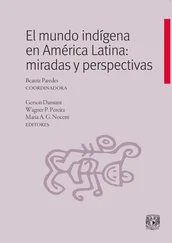Book Seven:A violent wind blows the ship back to Eudemia whence it departed. The two Romans disembark and seek out their friend GalloniusGallonius (Gabriel Naudé?). They all commiserate about a certain disagreeable old man named LigurinusLigurinus. The two Romans learn about the archaeologist OffuscatusOffuscatus (Antonio Bosio), who devotes his life to exploring Eudemia’s catacombs. Offuscatus incurs the jealousy of PlusiusPlusius (Alessandro Damasceni Peretti di Montalto) AccipiterPlusius Accipiter (Arrigo Falconio), who thinks Offuscatus is treasure hunting and enriching himself with his finds; this prompts Offuscatus to conspire with a certain StyliusStylius (Pompeo Colonna) to play a trick on Plusius. On their way to a bookshop, the two Romans and Gallonius hear about a pair of swindlers who use a beautiful young man as a honeypot to trick rich men into paying them a ransom. At the bookshop they hear about various men gifted in letters, art, and science. They also hear the story of a wicked, filthy old man named MerlinusMerlinus, who aids a penniless youth in engaging the services of a prostitute. Next, they hear the story of RufusNicius Rufus (Gian Vittorio Rossi) the clerk, whose servant spends the household money entrusted to him and disguises himself as a wealthy man in order to play a trick on his master. Next they listen to the story of a widow, who goes before a judge to recoup money she has loaned to a dishonest neighbor. While waiting at the port to set sail, they hear various tales of fraudsters feigning religious frenzy in order to trick people into thinking they are possessed by demons. They also meet a young surgeon, who has been thrown out of his house for inadvertently causing his father to eat a human liver. They then hear the story of a philosopher and adherent of the cult of MinervaMinerva, who seduces the maidservant of a nobleman’s wife. They also come across the old man Merlinus again attempting to recoup his money from a prostitute.
Book Eight:On board the ship, they hear the story of a dishonest soldier of a religious military order who tricks people into believing he is an alchemist and then uses that supposed power as collateral for obtaining loans and stealing other people’s riches—until his ruse is exposed. Next, they hear the story of GetaGeta, who finds a clever way to recoup the money he has spent buying gifts for his beloved. They then hear the story of a sexton of the Temple of ApolloApollo who is being transported in chains to his punishment for stealing a young man’s beloved falcon and attempting to hold it hostage in exchange for sexual favors. At the conclusion of this story, they hear a poem against wanton love affairs. The next person they meet offers his expertise in where and how to indulge in all of the illicit pleasures Eudemia has to offer. Next Paulus AemiliusPaulus Aemilius Verus is able to find a clever solution to the plights of two men who have each been wronged by their wives. When they arrive at their destination, they hear the story of Dynast ViusVius, who is so taken by his fondness for a dishonest young man that not even his brother-in-law MegalobulusMegalobulus is able to persuade him that the young man deserves punishment. Finally, the two Romans arrive at the neighboring island and discover a land that is fertile, abundant, and inhabited by law-abiding and welcoming citizens who are all equal under the law. They decide to settle there and procure a villa on a high hill with a farm to sustain them.
Book Nine:The two Romans are enjoying their life on the neighboring island, relishing their villa on a high hill and its surrounding gardens. They partake in many intellectual pursuits in the company of the island’s accomplished scholarly community, and they derive particular pleasure from getting to know a scholar named AristidesAristides (Ugone Ubaldini). They are pleasantly surprised by the arrival of GalloniusGallonius (Gabriel Naudé?), who has come to the island to run errands for his dynast. Gallonius tells them the good news that the citizens of Eudemia are rejoicing because a certain King NicephorusNicephorus, King (Gustav II Adolf) was thwarted in his attempt to conquer the island and was killed. Various stories follow about a number of tricksters, scofflaws, and thieves, and the judges who hear their cases. Next they meet a man named SuffenusSuffenus who is quite taken with his own talents. They then hear a few more stories about the adjudication of cases by judges who either do not follow the law, or who find clever ways to make someone whole. They hear examples about how stingily wealthy men show their appreciation for services rendered. While they are waiting in the theater to hear the speech of a scholar named IcosippusIcosippus (Gian Vittorio Rossi), Gallonius recites a long poem about the rex sacrorum HumanusHumanus (Urban VIII) and his brother MellitusMellitus (Francesco Barberini). Icosippus then gives a long speech about the virtue of useful laughter. Saddened that Gallonius must return to Eudemia, the two Romans accept his invitation to go with him to experience the celebrated annual games the poliarchs organize at certain times of the year. They are sad to leave their friend Aristides and promise to write to him.
Book Ten:The two Romans set sail with GalloniusGallonius (Gabriel Naudé?) back to Eudemia, where they head to Gallonius’s house, where Gallonius leaves them while he goes to tend to his dynast. While waiting for Gallonius to return, they are visited by AridusAridus (Gian Vittorio Rossi?), whom they had met at the academy meeting. A discussion among the three men ensues, in which they proffer examples, primarily from antiquity, regarding the dangers of conferring excessive and unwarranted praise, and the absurdity of those who seek undeserved, and often extravagant, honors. Aridus then informs the two Romans that the celebrations and games will soon commence. Toward evening they get their first taste of the celebrations when they see throngs of masked revelers filling the streets below their window, along with a spectacular dance performance. Aridus then describes to them the races, which are the central event of the celebrations, explaining that they are run by both people and animals who contend for specific prizes. Gallonius soon returns home, and they all go to bed. They are awakened and entertained by various theatrical spectacles in the form of beautiful stagecraft, music, and dancing. The following night they enjoy the sights and sounds of a city in the throes of joyful celebration. They receive a dinner invitation from a friend of Gallonius and spend a delightful evening eating, listening to a concert, playing games, and hearing amusing stories. A few days later they venture into the streets again to experience continuing celebrations. They enjoy an entertaining parade, after which they watch their first race. At the suggestion of Gallonius, the two Romans don masks so they can more fully participate in the revels. Next the two Romans attend a horse race, and they learn what it takes to be a champion horse. They return home to rest, and Flavius VopiscusFlavius Vopiscus Niger (Gian Vittorio Rossi?) Niger pens a letter to AristidesAristides (Ugone Ubaldini). That night they are invited to dinner at the home of a friend of Gallonius, where they hear about poliarchs behaving badly. The next day they experience a holiday, when working people have the day off and are invited to indulge in food and drink, which is provided by one of the city’s wealthy residents. They learn that the following day is sacred to a god named IndexIndex, when spies and informants are tricked and shamed. They watch another horse race. On the last day of the races, they enjoy local delicacies at the finish line and discover that the conclusion of the races offers an amusing surprise. There are other spectacles and celebratory games for the two Romans to witness, as well as an oration to enjoy and distinguished people to see. Flavius Vopiscus Niger writes to Aristides again. The next day they are invited by a friend of Gallonius to see festivities and games that take place on the river. By the by, they hear a morality tale about a man who accumulated too many riches and suffered the consequences. The very last celebrations the two Romans see are those of the common people, who feast and play games on the grounds of a country estate. At the conclusion of these festivities, the two Romans finally decide to leave Gallonius and return home to the neighboring island,2 where they find their community shaken by the malicious actions of a con man. In the end, they settle back into their literary life, albeit in the company of a nobleman who is wealthy but not particularly educated.
Читать дальше












